They may not be the most popular beverage in Africa, unlike in the US where their sales have surpassed that of wine, but spirits are definitely high up on the list of favourite alcoholic drinks across several countries on the continent.
This is not surprising, especially when you consider their versatility and what they are used for. For example, what is the main ingredient of your favourite cocktail? Your answer would most likely be a spirit or liqueur, which well, is a type of spirit!
It does not automatically mean other alcoholic beverages aren’t as useful. Vermouth has been used by mixologists for years, and recently, more wineries are encouraging and promoting wine cocktails as a better alcoholic option for those who cannot stomach high levels of alcohol. Beer cocktails are also a thing, as a quick Google search will reveal.
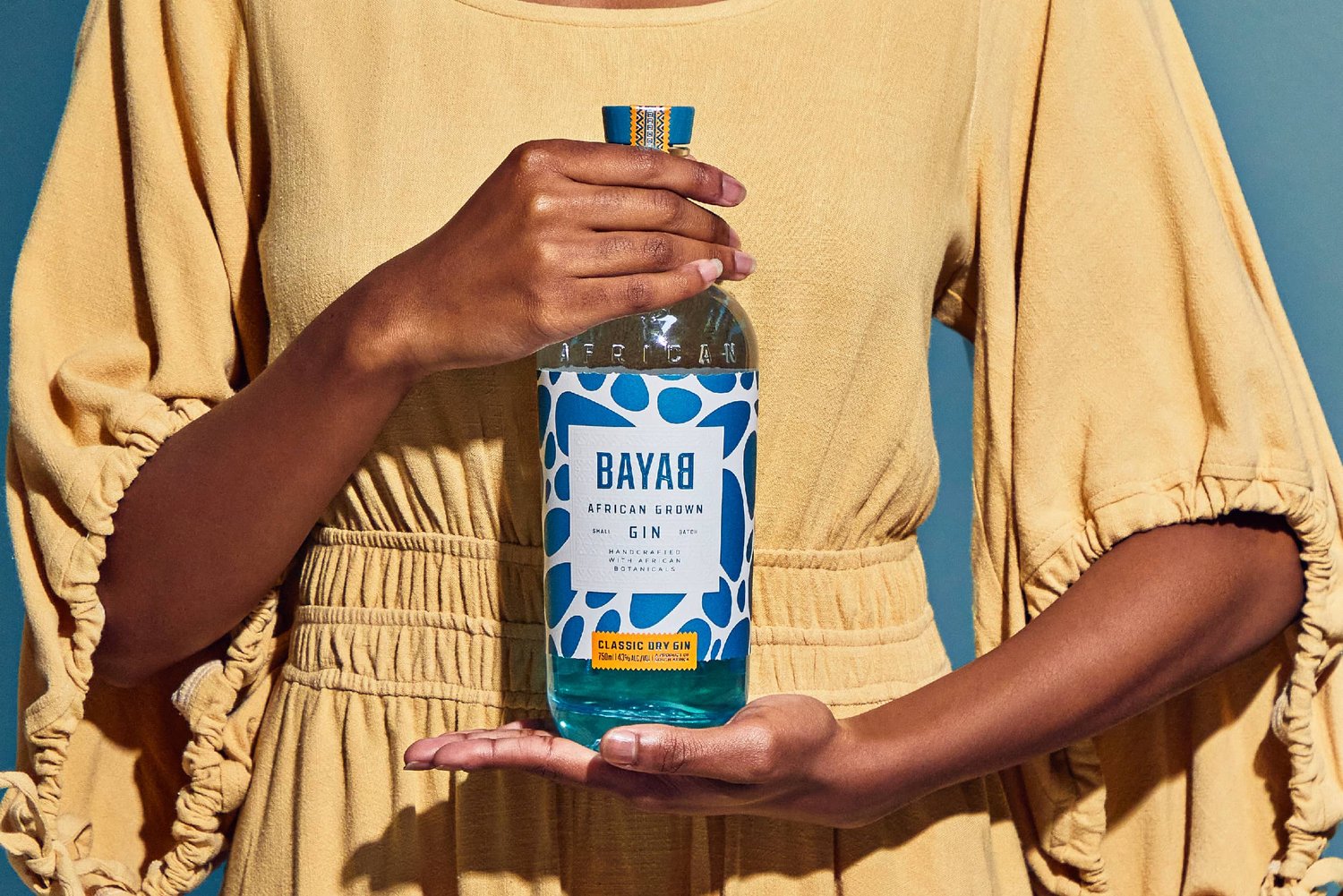
However, spirits appear to offer a more diverse range of cocktail options. This may be attributed to the fact that they have been used for so long in this area that a robust range of recipes and experimentation abound. It also helps that at its core, a spirit – be it a gin or rum or whisky – is an uncomplicated alcoholic beverage, making it perfect for whatever concoction you’re looking to put together. Lastly, compared to wines, they are more affordable, which means more people can have access to them.
Including here in Africa, where it is isn’t only used for cocktails, but for ceremonies and religious events. Spirits have been produced for more than a hundred years now across several countries in Africa, yet surprisingly, they are not as popular as others from beyond the continent.
If you love mixing up a good cocktail or would rather take a bottle of gin or vodka or rum above other types of alcoholic drinks, here are some premium, made-in-Africa brands to immediately try out, that is, if you haven’t already!
Pedro’s Ogogoro, Nigeria
Pedro’s Ogogoro is arguably one of the more popular spirits out of Africa, so there is a pretty high chance that you’ve tasted it or heard about it. Per Lola Pedro, one of its co-founders, Ogogoro is “a palm spirit from palm wine” not a gin, nor a rum, nor vodka.
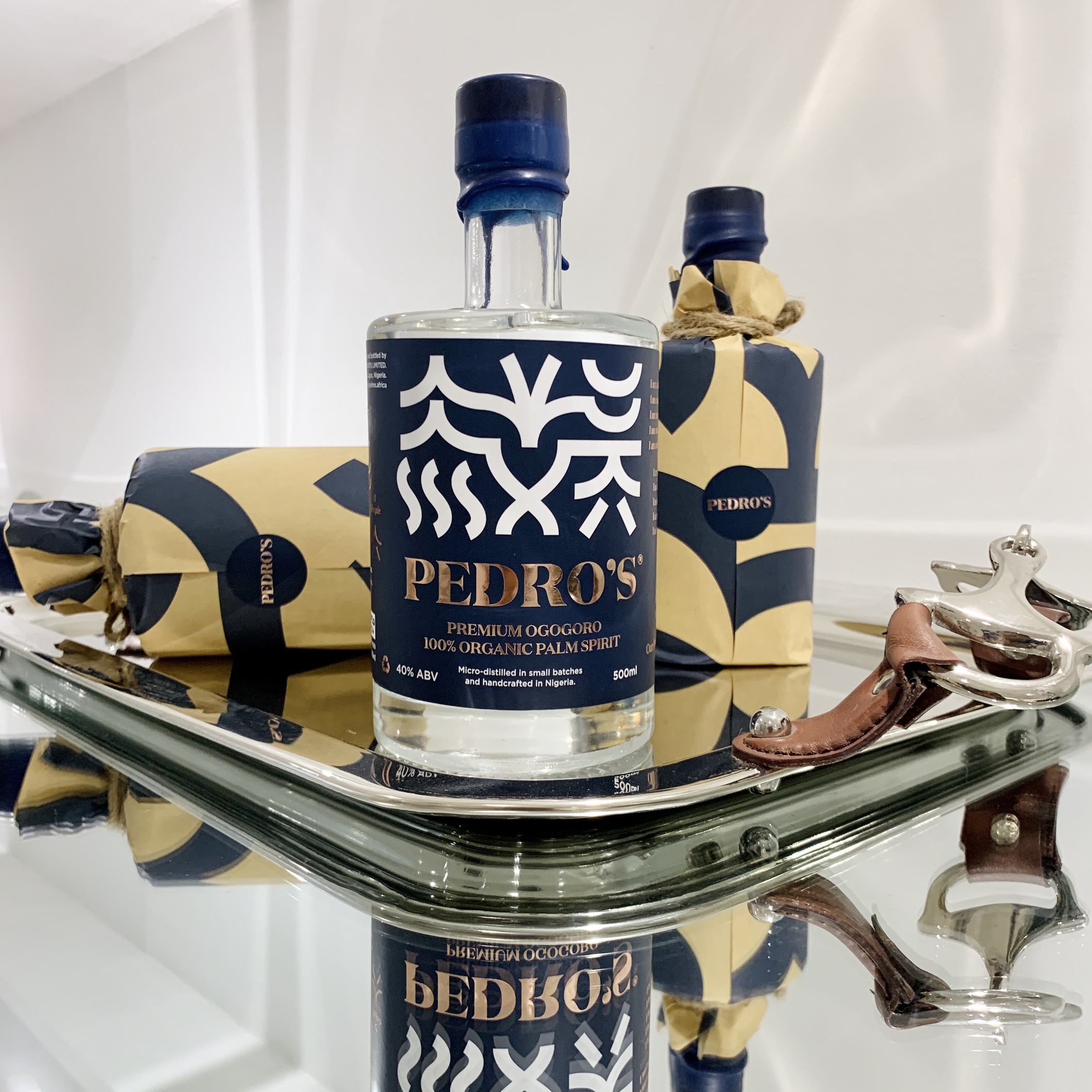
During Nigeria’s colonial era, Ogogoro was associated with illicit and badly-produced alcohol. These days, it is used to refer to any cheap, badly-produced alcohol with a high ABV sold by roadsides all over Nigeria at least. In reality, neither one of these is what Ogogoro is.
Pedro’s is not only on a mission to change this narrative but is also eager to make this locally-produced alcoholic beverage a worldwide phenomenon.
Aphro Palm Spirit, Ghana
Like Pedro’s, Aphro is an alcoholic spirit made from the sap of palm trees. In fact, it is the same as Nigeria’s Ogogoro, only that in Ghana, it is known as Akpeteshie.
Just like its Nigerian brother, Akpeteshie was turned into a villainous, poisonous drink during the colonial era to push the sale of imported spirits.
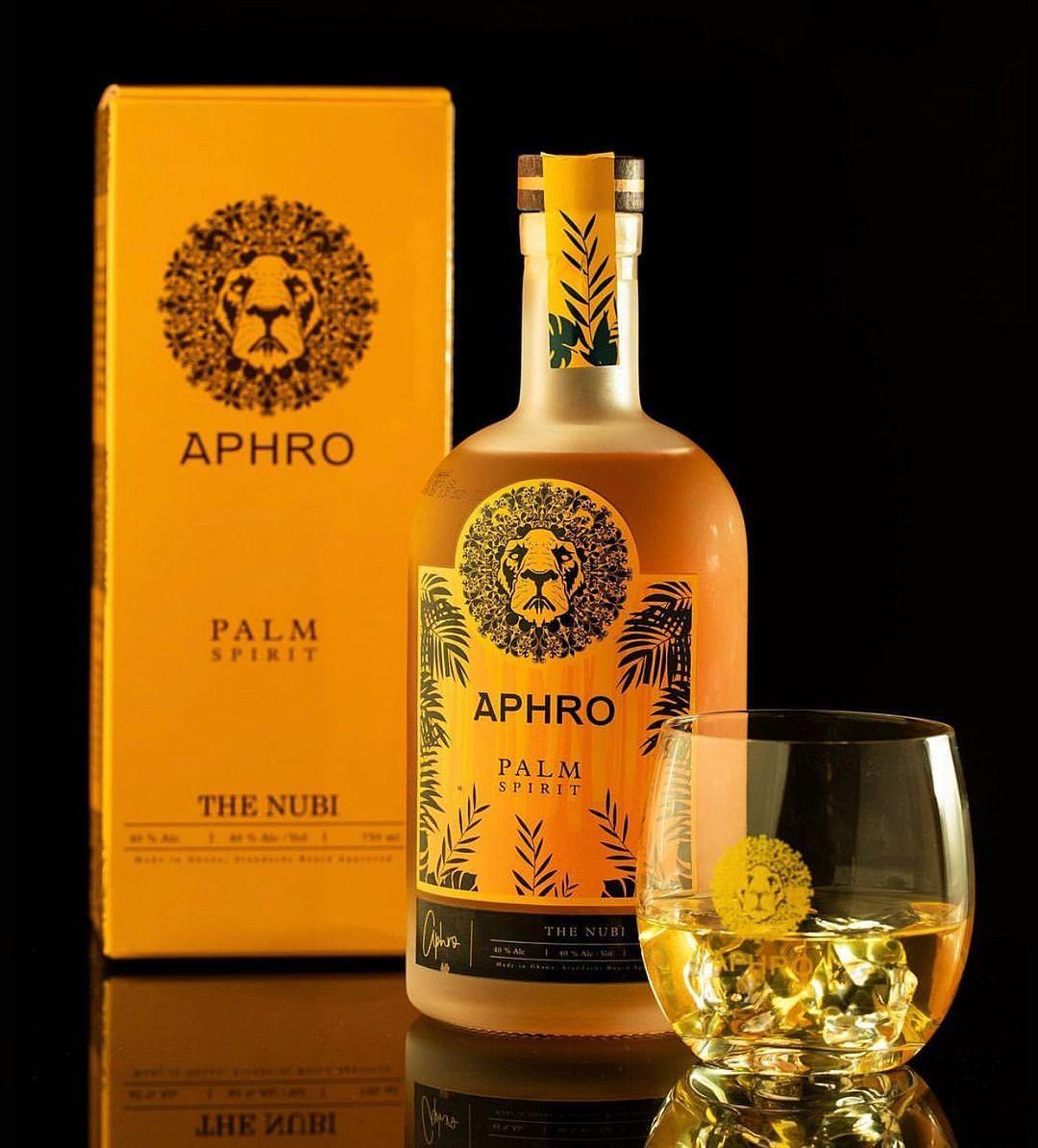
Aphro is also trying to correct this misnomer, and if you’re looking to try something different yet familiar, then look no further than the Aphro Palm Spirit which comes in two flavours: the Nubi which is a mix of flamed pineapple, tropical passion fruit and a little West African honey, and, the Moor which mixes local ginger, spices and Hwentia pepper to make a spicy, robust delightful beverage.
Vusa Vodka, South Africa
Vusa Vodka is the brainchild of Chris Frederick and Damola Timeyin, the duo behind Spearhead Spirits which also produces Bayab Gin.
Unlike Pedro and Aphro, Spearhead Spirits is not so much about promoting original locally-developed alcoholic beverages as it is focused on proving that the continent is just as capable of making internationally acclaimed drinks as its counterparts.
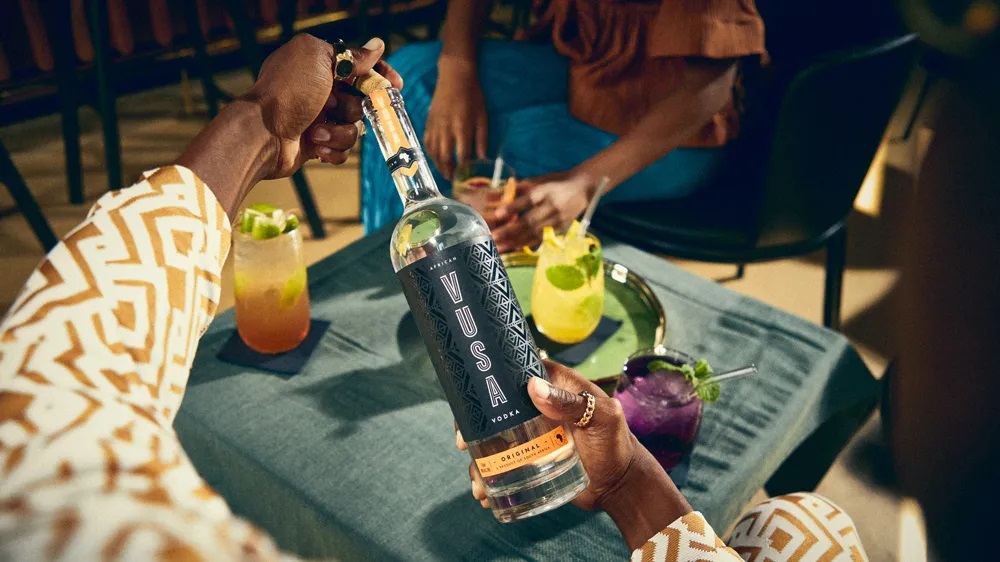
Vusa Vodka is made from sugarcane grown in the KwaZulu-Natal province of South Africa, and distilled in small batches in copper pot stills. It is then filtered through the shells of the baobab fruit before bottling to give it a clean, crisp finish.
Waragi Wildcrane, Uganda
The name ‘Waragi’ has some interesting history. According to sources, its original name wasn’t Waragi; although what that was is not immediately clear. The recipe for the alcoholic drink was passed on from generation to generation and, all over Uganda, it was the favoured drink for both the rich and poor.
When the colonisers came, they noticed that Ugandans would immediately bring out this spirit during periods of victory and celebration. And so they nicknamed it ‘war gin’. As with most things, war gin was soon localised to ‘Waragi’, which has now become the official name of the ancient local Ugandan drink made from a mix of any of the following: bananas, millet, cassava or sugarcane.
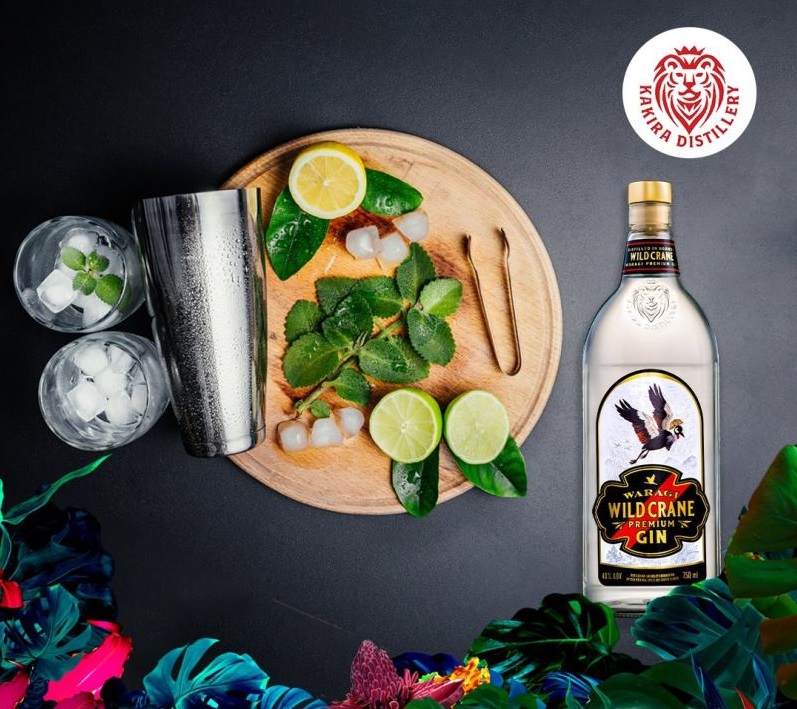
Unlike Nigeria’s Ogogoro, Waragi is widely produced and consumed in Uganda, and several distilleries making premium, standard Waragi exist. One such is the Kakira distillery whose Wildcrane Premium Gin uses the Waragi recipe in its formulation. What is this recipe exactly? We don’t know, but, judging by the fact that its other spirits have won international awards, it may be safe to say that this is possibly the Waragi you should add to your spirits portfolio.
Tambour Sodabi, Benin Republic
Sodabi is to Benin, as Akpeteshie is to Ghana, and Koutoukou is to Côte d’Ivoire. But unlike the others, the Beninese can actually trace the history of their Sodabi to its humble beginnings.
Per Tambour, it all started when Bonou Kiti Sodabi, a Beninese soldier, went to Europe to fight in WW1. There, he saw how the distillation process worked, and upon his return to his country, teamed up with his brother, Gbehlaton, to produce Sodabi using the popular palm wine as their main material after an initial failed experiment with bananas.
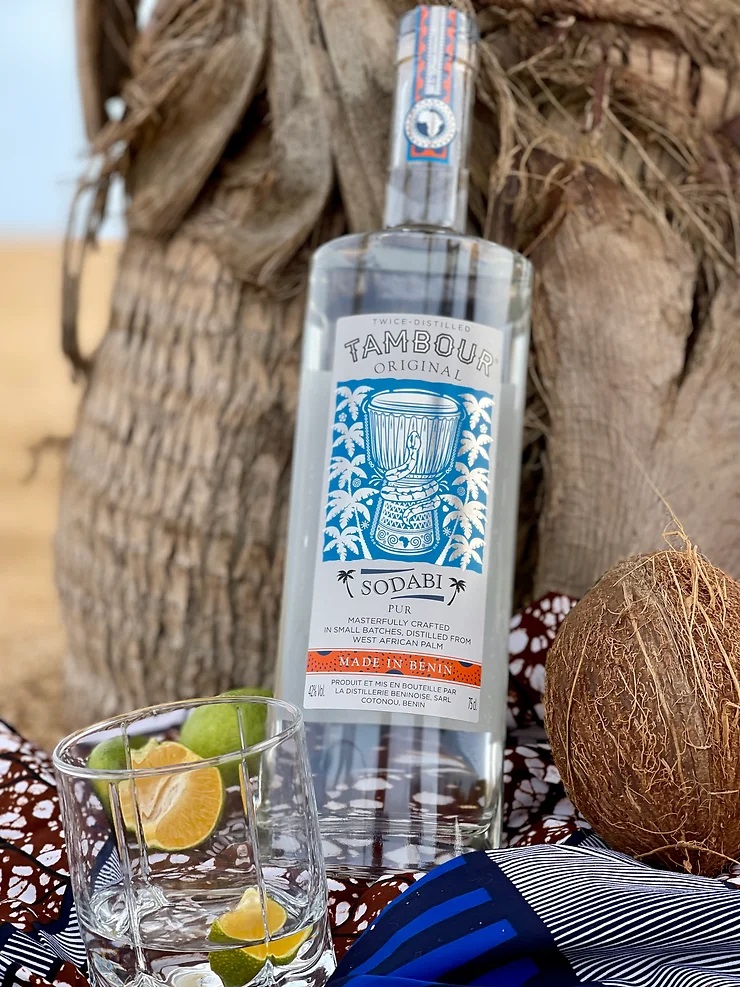
By 1920, Sodabi had become widespread and its popularity only continued to grow, leading the colonialists to ban its production and sale in 1931. The Sodabi brothers were even arrested, but this did nothing. As in other countries and civilisations of the world, prohibition only led to secret manufacture and sales.
In 1975, fifteen years after its independence, Benin officially lifted the prohibition against Sodabi. Today, Tambour Sodabi is perhaps the best-known palm spirit from the country, having won international awards twice now. You can choose between its two distinct flavours: the spiced Sodabi and its recently launched brother, White Sodabi.
